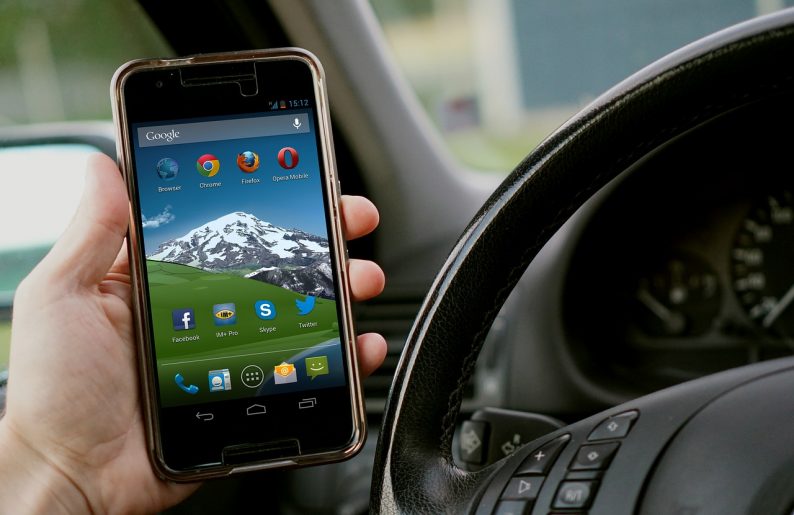How To Keep Your Smartphone Secure While Traveling

As we travel to new destinations, our smartphones become an essential tool to stay connected, navigate unfamiliar places, and capture memories. However, the risk of losing or having our device compromised increases when we’re on the move. In this article, we’ll cover the essential tips and best practices to keep your smartphone secure while traveling.
Pre-Travel Preparations
Before embarking on your journey, make sure your smartphone is up-to-date with the latest security patches and operating system. This will ensure you have the latest security features and fixes.
- Enable Two-Factor Authentication (2FA): Activate 2FA on your device to add an extra layer of security. This will require a verification code sent to your phone or email in addition to your password or fingerprint.
- Set a Strong Password or PIN: Create a unique and complex password or PIN that’s difficult to guess.
- Install Anti-Virus Software: Install a reputable anti-virus app to scan your device for malware and protect against potential threats.
- Backup Your Data: Backup your important files and data to a cloud storage service like Google Drive, Dropbox, or iCloud.
Travel-Specific Security Measures

When traveling, it’s essential to take extra precautions to secure your smartphone.
- Use a VPN: Install a Virtual Private Network (VPN) app to encrypt your internet traffic and protect against hacking. Choose a reputable VPN provider that offers reliable and secure connections.
- Keep Your Device Close: Always keep your device in a secure and visible location to prevent theft or loss.
- Use a Phone Case with Card Slots: Consider using a phone case with card slots to store your credit cards, hotel key cards, or cash.
- Avoid Using Public Wi-Fi: Avoid using public Wi-Fi networks, especially when accessing sensitive information like banking or email. Instead, use a mobile hotspot or a secure Wi-Fi network.
- Keep Your Device and Apps Up-to-Date: Regularly update your device and apps to ensure you have the latest security patches and features.
Additional Security Tips
- Use a Phone-Finding Service: Activate a phone-finding service like Find My iPhone (Apple) or Android Device Manager (Google) to locate your device if it’s lost or stolen.
- Be Cautious withPublic Charging Stations: Be wary of using public charging stations, as they can be easily tampered with to steal your data. Instead, carry a portable charger or use a charging cable with a built-in security chip.
- Avoid Clicking on Suspicious Links: Be cautious when clicking on links from unknown sources, especially if they ask for personal information or login credentials.
- Use a Secure Browser: Use a secure browser like Tor or a browser with built-in security features like Google Chrome.
Regional-Specific Security Considerations
- Traveling to Countries with Strict Cyber Laws: When traveling to countries with strict cyber laws, be aware of the local regulations and restrictions on device usage. For example, some countries may require you to register your device or obtain a local SIM card.
- Avoid Accessing Sensitive Information in Public: Avoid accessing sensitive information like banking or email in public, especially in countries with high levels of cybercrime.
- Use a Local SIM Card or Portable Wi-Fi Hotspot: Consider using a local SIM card or portable Wi-Fi hotspot to stay connected and avoid roaming charges.
Conclusion
By following these tips and best practices, you can significantly reduce the risk of losing or having your smartphone compromised while traveling. Remember to always be vigilant and take extra precautions to protect your device and sensitive information. Whether you’re traveling for business or pleasure, keeping your smartphone secure is essential for a safe and enjoyable trip.
Additional Resources:
- National Cyber Security Alliance (NCSA): A non-profit organization that provides tips and resources for staying safe online.
- Federal Trade Commission (FTC): A US government agency that provides guidance on protecting your online identity and security.
- Your Device Manufacturer: Check your device manufacturer’s website for specific security tips and recommendations.
FAQs:
- What if I lose my device while traveling?: Activate your phone-finding service to locate your device, and contact your carrier to suspend or cancel your account if necessary.
- How can I protect my device from hacking?: Use a VPN, keep your device and apps up-to-date, and avoid using public Wi-Fi networks.
- What if I need to access sensitive information while traveling?: Use a secure browser, and consider using a portable Wi-Fi hotspot or a secure mobile network.
By following these tips and best practices, you can keep your smartphone secure while traveling and stay connected to what matters most.


Post a Comment